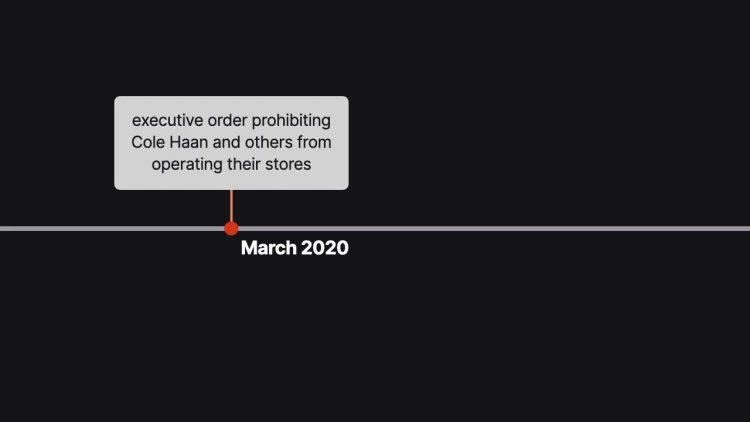1600 Walnut Corp. v. Cole Haan Company Store
United States District Court for the Eastern District of Pennsylvania
530 F. Supp. 3d 555 (2021)

- Written by Mary Phelan D'Isa, JD
Facts
In 2004 Cole Haan Company Store, L.L.C. (Cole Haan) (defendant) entered a long-term commercial lease with 1600 Walnut Corporation (1600 Walnut) (plaintiff) to operate a store. In 2014 the parties agreed to extend the lease through March 31, 2025. The lease allocated certain risks between the parties and included a force majeure clause that suspended performance in the event of “restrictive government regulations, riots, insurrection, war or another reason not the fault of or beyond the reasonable control of the party delayed” but did not relieve a tenant from the obligation to pay rent. A March 2020 COVID-19 executive order from the Pennsylvania governor’s office prohibited Cole Haan from operating its store, but after June 5, 2020, Cole Haan and other retailers in Philadelphia were permitted to reopen with restrictions. Cole Haan permanently vacated the storefront in March 2020 and did not pay rent since that time. 1600 Walnut sued to enforce Cole Haan’s rent obligations, and Cole Haan asserted six counterclaims seeking declaratory judgment on numerous common-law theories including frustration of purpose, impossibility, and impracticability. 1600 Walnut moved to dismiss the counterclaims. Cole Haan argued that the pandemic fell outside the force majeure clause in the parties’ lease agreement because the listed examples in the clause were limited to manmade events of relatively short duration, whereas the pandemic was a naturally occurring phenomenon.
Rule of Law
Issue
Holding and Reasoning (Joyner, J.)
What to do next…
Here's why 907,000 law students have relied on our case briefs:
- Written by law professors and practitioners, not other law students. 47,100 briefs, keyed to 996 casebooks. Top-notch customer support.
- The right amount of information, includes the facts, issues, rule of law, holding and reasoning, and any concurrences and dissents.
- Access in your classes, works on your mobile and tablet. Massive library of related video lessons and high quality multiple-choice questions.
- Easy to use, uniform format for every case brief. Written in plain English, not in legalese. Our briefs summarize and simplify; they don’t just repeat the court’s language.





